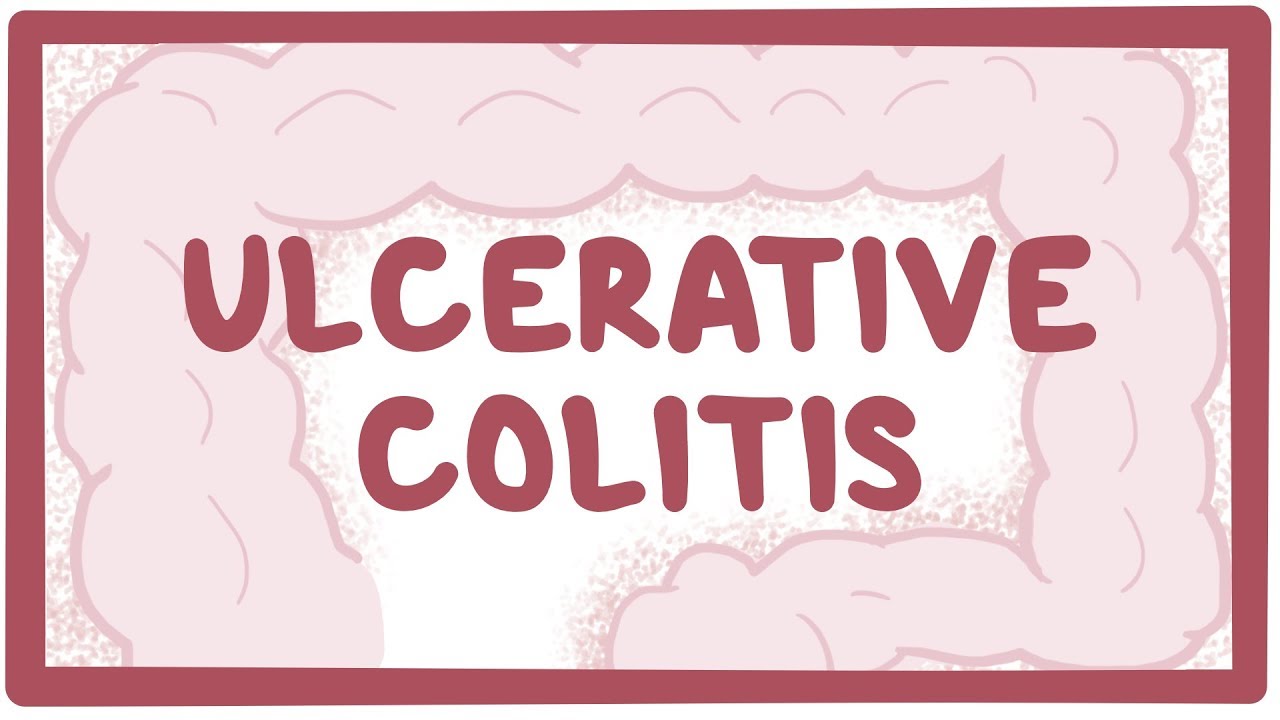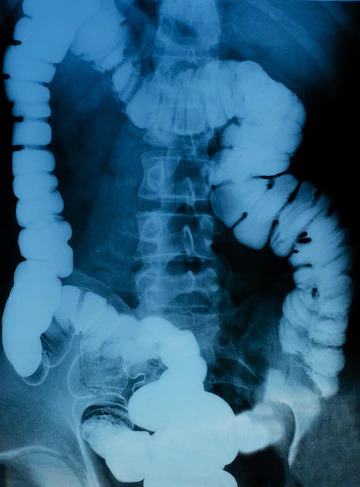How Can You Treat Dhodh Ulcerative Colitis Naturally?
Dhodh ulcerative colitis can be challenging, but with the right approach, relief is possible. Explore proven remedies and lifestyle changes for better management.
Author:Suleman ShahReviewer:Han JuDec 25, 2024215.3K Shares3M Views

DHODH ulcerative colitisis a well-tolerated and orally accessible small molecule inhibitor of dihydroorotate dehydrogenase containing vidofludimus calcium for ulcerative colitis.
IMU-838, which contains vidofludimus calcium, lowers the proinflammatory immune cell response by activating Mregs, decreasing pro-inflammatory cytokine release, and inhibiting immune cell proliferation.
DHODH is only significant in cells that have been stimulated strongly and are very metabolically active.
As a result, IMU-838 will only precisely target these cells while still allowing for normal immune response, indicating a significant safety benefit for patients.
What Is Ulcerative Colitis?
Ulcerative colitis (UC), also known as inflammatory bowel disease (IBD), is a condition that causes erosion and ulcers in the inner lining of the large intestine (also known as the large bowel).
It is a condition that lasts a lifetime and has no known cause or treatment.
Patients have recurrent cycles of flare-ups and remission, and there is a possibility that extraintestinal symptoms may occur.
There is a significant psychological and social influence on the patients who are afflicted by it.

Ulcerative colitis - causes, symptoms, diagnosis, treatment, pathology
Ulcerative Colitis Causes
What exactly causes ulcerative colitis is not understood, often known as UC. However, studies have uncovered a few potential causes of the condition, which are as follows:
- Genetics
- Immune reactions:The body's immune system launches an assault against the mucosal lining of the large intestine (an autoimmune disorder).
- Environmental factors:Consumption of a diet that is rich in fat, sulfur, and the amount of meat consumed, various pharmaceuticals, abuse of alcoholic beverages and illicit drugs, stress on a person's psyche
- Medications:Taking nonsteroidal anti-inflammatory medicines (NSAIDs) might increase your chance of developing ulcerative colitis (UC).
- Milk:Consumption has the potential to make the condition worse.
Diagnosis And Treatment
The doctor would do a thorough physical examination and recommend a battery of specialist blood and radiological tests (X-ray, computed tomography [CT] scan, etc.).
Other tests, including colonoscopy, endoscopy, biopsy, and stool examination, may be performed.
Ulcerative colitis (UC) is a chronic condition alternating between flare-ups and remissions (relief in symptoms).
There is no permanent medical treatment for it, but there are many drugs that may give symptomatic relief, decrease inflammation, and control flare-ups.
Patients will also need to make modifications to their food and lifestyle.
Medical therapyconsists of the following:
- Immune suppression and modulation medication
- Painkillers
- Antibiotics
- Anti-diarrhea medicine
Surgical therapyinvolves the following procedures:
- In extreme situations, a colectomy (surgical removal of a portion of the whole colon) may be necessary.
- Dietary modifications:
- Low-fat, meat-free, sulfur-free, and milk-free diet
- Psychological stress management and emotional support
Vidofludimus Ulcerative Colitis
Vidofludimus is a new oral immunomodulatory medication tested in Phase II trials for inflammatory bowel disease (IBD) and rheumatoid arthritis (RA) and preclinical trials for lupus.
Vidofludimus is a potent inhibitor of DHODH, a critical enzyme in de novo pyrimidine biosynthesis, and hence limits the proliferation of activated T and B cells by inhibiting DHODH.
Vidofludimus also inhibits the expression of pro-inflammatory cytokines such as IL-17 in activated lymphocytes, even in exogenous uridine, indicating a pharmacological effect independent of inhibiting DHODH and T-cell proliferation, but the targeting mechanism remains unknown.
Medication repositioning provides more efficiency than standard drug developmentby identifying their potential for functionally engaging with unexpected targets.
This method has the potential to increase the optimization of existing medications and lead to novel therapeutic switching.
Vidofludimus was discovered to be a new farnesoid X receptor modulator with therapeutic promise in the treatment of non-alcoholic fatty liver disease.
People Also Ask
What Is Life Expectancy With Ulcerative Colitis?
Patients diagnosed with ulcerative colitis (UC) often have the same lifeexpectancy as people in the general population who do not have the illness.
UC is a condition that lasts for a person's whole life, alternating between active episodes and remission (periods without symptoms, which may last for weeks or years).
What Medications Should Be Avoided With Ulcerative Colitis?
A UC person may want to steer clear of some drugs since such medicines might worsen their UC symptoms.
These include non-steroidal anti-inflammatory drugs (NSAIDs) like ibuprofen, naproxen, and aspirin.
There is some evidence that some antibiotics might make the symptoms of UC worse.
A person with UC should steer clear of some supplements since they may make their symptoms more severe.
What Is The Safest Drug For Ulcerative Colitis?
In mild-to-moderate disease severity, mesalamine is favored because it is the safest medicine available for UC therapy, with just a 0.2 percent risk of interstitial nephritis.
This makes it the drug of choice in cases when the severity of the illness is moderate or mild.
Does Curcumin Help With Colitis?
Curcumin is a naturally occurring molecule found in the spice turmeric, derived from ginger root, and may aid in inflammation reduction.
A few small trials have shown encouraging benefits in treating ulcerative colitis when combined with mesalamine therapy.
Conclusion
IMU-838 (vidofludimus calcium) inhibits dihydroorotate dehydrogenase preferentially (DHODH).
Dihydroorotate dehydrogenase is highly expressed in proliferating or activated lymphocytes.
Resting lymphocytes salvage pyrimidine without DHODH. IMU-838-mediated DHODH inhibition affects active, proliferative lymphocytes.
Metabolic stress from DHODH inhibition reduces pro-inflammatory cytokine production, particularly IL-17 (IL-17A and IL-17F), and increases lymphocyte death.
The study includes a blinded induction phase to determine the optimal dose of IMU-838 to induce response and remission, a blinded maintenance phase to evaluate IMU-838's ability to maintain remission until Week 50, and an open-label treatment extension arm for patients who discontinue the blinded phase as scheduled or prematurely, subject to certain restrictions.
A selection of patients will undergo pharmacokinetic (PK) testing to create a single-dose PK profile.

Suleman Shah
Author
Suleman Shah is a researcher and freelance writer. As a researcher, he has worked with MNS University of Agriculture, Multan (Pakistan) and Texas A & M University (USA). He regularly writes science articles and blogs for science news website immersse.com and open access publishers OA Publishing London and Scientific Times. He loves to keep himself updated on scientific developments and convert these developments into everyday language to update the readers about the developments in the scientific era. His primary research focus is Plant sciences, and he contributed to this field by publishing his research in scientific journals and presenting his work at many Conferences.
Shah graduated from the University of Agriculture Faisalabad (Pakistan) and started his professional carrier with Jaffer Agro Services and later with the Agriculture Department of the Government of Pakistan. His research interest compelled and attracted him to proceed with his carrier in Plant sciences research. So, he started his Ph.D. in Soil Science at MNS University of Agriculture Multan (Pakistan). Later, he started working as a visiting scholar with Texas A&M University (USA).
Shah’s experience with big Open Excess publishers like Springers, Frontiers, MDPI, etc., testified to his belief in Open Access as a barrier-removing mechanism between researchers and the readers of their research. Shah believes that Open Access is revolutionizing the publication process and benefitting research in all fields.

Han Ju
Reviewer
Hello! I'm Han Ju, the heart behind World Wide Journals. My life is a unique tapestry woven from the threads of news, spirituality, and science, enriched by melodies from my guitar. Raised amidst tales of the ancient and the arcane, I developed a keen eye for the stories that truly matter. Through my work, I seek to bridge the seen with the unseen, marrying the rigor of science with the depth of spirituality.
Each article at World Wide Journals is a piece of this ongoing quest, blending analysis with personal reflection. Whether exploring quantum frontiers or strumming chords under the stars, my aim is to inspire and provoke thought, inviting you into a world where every discovery is a note in the grand symphony of existence.
Welcome aboard this journey of insight and exploration, where curiosity leads and music guides.
Latest Articles
Popular Articles
